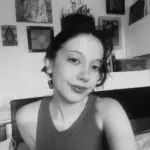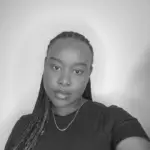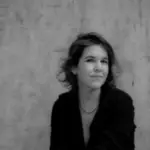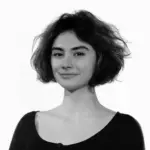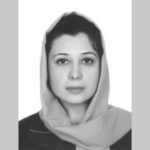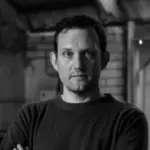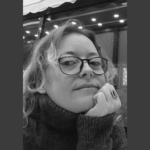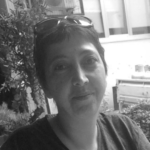
SPACE International Conference 2024 on Architectural Culture and Society

The 7th SPACE International Conference on Architectural Culture and Society will be held hybridly on the 26th and 27th of September 2024. The theme of the conference is ‘Rethinking Spaces: Exploring Radical Practices, Narratives, and Pedagogies in Architectural Culture and Society’.
The conference theme, “Rethinking Spaces: Exploring Radical Practices, Narratives, and Pedagogies in Architectural Culture and Society,” propels scholarly inquiry into the transformative realms of architectural culture and societal dynamics. This theme beckons a critical examination of conventional practices, narratives, and pedagogies within the architectural domain, urging a departure from established norms. Scholars and practitioners engaging with this theme are invited to explore radical interventions that challenge existing paradigms and pave the way for innovative spatial solutions. The conference serves as a crucible for the interrogation of architectural culture’s role in shaping societal narratives and vice versa, fostering a rich dialogue on the reciprocal influence between the built environment and broader cultural contexts. The conference seeks to unravel the latent potential for transformative change within architectural culture and society by delving into radical practices and pedagogies, offering a platform for critical discourse and exploration.
Call for Papers
TOPICS
1. Radical Architectural Practices:
- Unveiling design methodologies and approaches that transcend established paradigms embodying a revolutionary ethos.
- Investigating the intricate intersection of architecture with art, technology, and social movements, discerning their collective influence.
- Presenting meticulously examined case studies that articulate the realisation of built environments purposefully divergent from traditional norms.
2. Architectural Interventions in Urban Contexts:
- Redefining urban landscapes through audacious and unconventional architectural interventions reshaping the narrative of urban development.
- Strategising for the creation of inclusive and socially responsive urban spaces, addressing the exigencies of contemporary urban challenges.
- Examining the complex relationships between architecture, community identity, and societal well-being within the urban milieu.
3. Experimental Materials and Technologies:
- Pushing the boundaries of architectural innovation through the incorporation of cutting-edge materials and construction technologies.
- Investigating innovations in sustainable and eco-friendly architectural practices, with a deliberate emphasis on environmentally conscious design.
- Exploring the symbiosis between technology and design in architectural solutions, unravelling their synergistic potential.
4. Architectural Activism and Social Change:
- Narrating the narratives of architects as agents of transformative change, engaged in advocacy, activism, and the cultivation of societal impact.
- Examining the instrumental role of architects in addressing prevailing social and environmental challenges through the medium of architectural practice.
- Presenting meticulously researched case studies that exemplify architectural projects contributing substantively to positive societal change.
5. Pedagogical Paradigms in Architecture:
- Engaging in a profound re-evaluation of architectural education vis-à-vis the imperatives of the 21st century, considering dynamic societal and technological landscapes.
- Advocating for the integration of radical pedagogies and unconventional teaching methods that transcend the confines of conventional educational frameworks.
- Exploring the instrumental role of interdisciplinary studies in architectural education, fostering holistic perspectives among emerging professionals.
6. Architectural Criticism and Discourse:
- Conducting critical analyses of contemporary architectural discourse, discerning prevalent theories and methodologies.
- Exploring the intricate dynamics of media influence and public perception on architectural practice, with profound implications for the discipline.
- Challenging established norms and presenting diverse perspectives on the redefinition of architectural criticism within the evolving architectural landscape.
7. Cultural Identity and Architecture:
- Scrutinising architectural manifestations of cultural identity and diversity, acknowledging the nuanced facets of cultural representation.
- Proposing strategic frameworks for the preservation and celebratory representation of cultural heritage through architectural endeavours.
- Exploring the multifaceted role of architecture as a facilitator of cross-cultural understanding, acknowledging its potential as a dynamic medium of cultural dialogue.
Call for Intensives
SPACE’s “Call for Intensives” is an opportunity to contribute to the conferences that incorporate a spectrum of possibilities, including but not limited to the presentation of a concept/notion, research in progress, or incomplete research demanding a start for potential future collaborations. The formats for the intensives are as follows.
- Format 1: Poster and PowerPoint presentation
- Format 2: PowerPoint presentation.
We aim to create opportunities for developing the research that has yet to be completed but needs external networking support for its full accomplishments. Intensives’ presentations are not separated from other presentations at the conferences. They perform as part of sessions to introduce and discuss these projects with the academics and professionals of various disciplines.
Requirements:
1. The initial submission should include an abstract of a maximum of 250 words. This short abstract would need to be fully presented in any of the two selected formats mentioned above. It is necessary to clearly state the main concern or question under investigation and the potential outcome(s) of the research. It is also recommended to include describing the research stage and your expectations, such as asking for advice, looking for potential collaborators or academic partners to develop the research, requiring suggestions on helpful references, etc.
2. Upon approval of the short abstract, the presenter should submit an extended abstract of up to 1000 words elaborating on further details. The extended abstract (and poster if you have one) will be published in the annual SPACE Conferences abstract book; thus, applying a minimum of 5 references is highly recommended.
Notes:
1- In the case of selecting the mode of “Poster and PowerPoint Presentation”, it is suggested to apply the presentation sizes “50x70cm” or “70x100cm” with the conference name and SPACE Logo on it and their place depending on your design. Other preferred sizes are unfortunately not acceptable as they will be placed on the conference webpage. Please remember that as our conferences are hybrid in terms of attendance (unless otherwise announced), we do not hang the posters at the conference venue, and you will need to prepare a PowerPoint presentation to present your work at the conference for a 15-20-minute time slot.
2- Intensive submissions for both on-site and virtual attendance should be registered from the Oral Presentation Category.
Submission and Guidelines
The SPACE International Journal of Conference Proceedings will publish full papers. It is an interdisciplinary, international academic, refereed journal designed to publish conference papers mainly presented at SPACE International Journal of Conference Proceedings. It is an online journal published twice a year by SPACE Studies Publications. All articles submitted to the SPACE International Conferences have undergone rigorous double-blind peer review by two referees based on initial editor’s screening.
Guidelines for the papers that will be submitted to the SPACE International Conferences are explained in detail on the Instructions for Authors page as part of the Journal specifically designed to publish the conference papers presented at our Conferences. These guidelines form the layout of the paper and involve a title, abstract (maximum of 250 words), keywords, sections and headings, tables, figures, equations, acknowledgements, references, figures, tables, and references. Please read the instructions, which detail everything you need to submit your conference paper to this Journal, and please follow them closely in order to ensure your paper matches all the requirements of the Journal.
You will not submit your full paper if you consider attending the Conference from the Oral Presentation Category. All the abstracts from the SPACE International Conferences are published in the Annual Conference Abstracts book at the end of each year. Your abstract will be published in the abstract book. If you prefer to publish an extended abstract and/or your poster, please email your preference to space@spacestudies.co.uk and upload the related document simply to the submission system.
The abstracts will be submitted via the website. The process will be as follows:
- Click the “Submit your abstract” button below.
- If you haven’t signed up yet, you must sign up to submit your abstract to the conference. So, when you click the “Submit your paper” button, the system will enable you to sign up.
- Once you log in, please go to the conference page you want to submit your paper and click “Submit your paper”. This will lead you to the submission page.
- Click “+ New Paper” to submit your abstract.
- Enter your title.
- You can directly text your abstract into the space given by deleting the instructions written for authors, or you can copy and paste your abstract to this area.
- A maximum of 250 words abstract is required and the space is limited to the required word count.
- The abstract should include the purpose of the research, research method, principal results and major conclusions.
- You need to add your keywords in the “Abstract Information” section. There must be a minimum of 4 and a maximum of 6 keywords.
- Select the topic you submit your abstract to on right-hand side of the page.
- Accept “Terms and Conditions”.
- Click the submit button.
The conference evaluation process covers abstract evaluation, so please do not attach any additional documents unless you are resubmitting your abstract or extended abstract and poster. Please do not include your or your co-author’s names either.
Once you are accepted, you may or may not need to resubmit, depending on the reviewer’s comments.
- If you choose to register from an oral presentation category, your full paper will not be published (but your abstract will be published), so if you have any comments that suggest that improvements are needed, that means that you still need to re-submit your abstract.
- If you choose to make a poster+PowerPoint Presentation, your abstract and poster will be published, so you must upload your poster even if there are no improvement suggestions advised by the reviewers.
- If you choose to be an author or virtual presenter, you must upload your full paper. Please submit your paper to the SPACE Studies Journal of International Conference Proceedings at this stage. Please be sure that you have all you need, which is listed on the Checklist before Submission section on the Instructions for Author page before submitting your paper. Once you are ready to submit, please use the submit button on the Journal’s pages and upload your documents as described.
If you are an oral presenter, after receiving the acceptance letter, you will submit your revised abstract (if needed), or extended abstract (depending on your preference but subject to reviewing and editing) and/or poster by logging in to the website.
- Click “+ New Paper” to submit your revised abstract.
- Enter your title and add “-Revised” to your title.
- You can directly text your abstract into the space given by deleting the instructions written for authors, or you can copy and paste your abstract to this area.
- You need to add your keywords in the “Abstract Information” section. There must be a minimum of 4 and a maximum of 6 keywords.
- Select the topic from the right-hand side of the page.
- Accept “Terms and Conditions”.
- Click the submit button.
- If you prefer to publish an extended abstract, please upload it before you submit your revised abstract.
Important Dates
2 January 2024
3 September 2024
7 September 2024
12 August 2024
16 September 2024
Full-Paper Submission Deadline
19 September 2024
19 September 2024
23 September 2024
26-27 September 2024
Programme
The SPACE International Conference on Architectural Culture and Society will examine the theme “Rethinking Spaces: Exploring Radical Practices, Narratives, and Pedagogies in Architectural Culture and Society” through various sessions. These will include keynote speeches, paper sessions, and so a digital exhibition, each offering unique perspectives on the theme. You can download the programme HERE. Continue to scroll down to see the sessions of the conference as they are announced. We look forward to seeing you at the conference!
Keynote Sessions
Keynote Session 1
26 September 2024, 9:30-10:20
“Public Art: Public Space” by Julian Wild
Julian Wild will talk about the role of audience engagement in public space through the lens of sculpture in his keynote speech. He will look at how the engagement and enjoyment of art and space can be planned and unplanned, investigating the ergonomics of space and different ways people interact with art in the public realm. Julian is an artist working in this area through both temporary communal sculpture projects and permanent artworks that contribute to placemaking. He will discuss the effect that his work and his peers can have on our dialogue with space, giving the opportunity for people to interact and leave their own trace in this space, specifically looking at how the skate community has engaged with one of his artworks in a radical way.
Keynote Session 2
26 September 2024, 13:10-14:00
“Inclusiveness, a multifaceted past-to-future legacy in the design and planning of city centres – case study: squares of Central Tehran” by Sanaz Shobeiri
Sanaz Shobeiri, PhD is working on a two-year research project titled “Age-gender inclusiveness as a user-to-author metamorphosis in city centres: Belfast and Tehran”, planned to be completed by November 2024. She has been simultaneously investigating the four interwoven layers of Architectural/Urban, Historical, Political, and Sociocultural, and their consolidated role in restoring the inclusivity of urban spaces of city centres. With a focus on the squares of Tehran Central, her current research acknowledges inclusiveness as a time-sensitive concept that transcends the existing strata by rehabilitating the notions of commemoration and envisaging.
Paper Sessions
Paper Session 1
26 September 2024, 10:40-12:20
Ginani Utami
Reclaiming Kampung: Understanding Space Production in Kampung Akuarium through Feminist Political Ecology Lense
Nur Rasyiqah Abu Hasssan
Manifestation of Architectural Conservation: Working beyond Authenticity
Fatima Zahra
Architectural Symbolism and Memory in Saadat Hasan Manto’s Fiction: Portals of Narrative
Nastja Dolinsek Utrosa
Enhancing Wayfinding and User Experience in Complex Urban Healthcare Environments: A Study of the University Medical Centre (UMC) Ljubljana
Miho Nakagawa
Examining English Translations of ma Interpretations between the 1960s and the 1980s
Paper Session 2
26 September 2024, 15:20-16:40
Anna Sieczak
On-site Hand sketching; a tool for developing cognitive skills for postgraduate Landscape architecture students
Daixue Shen
Cultural Injection: The Hybridized Urban Community
Crystal Olin
Is Placemaking Changemaking?: Insights from Public and Community Housing in Aotearoa New Zealand
Bilge Basaran Caglayan
Experience Of Agricultural Bank Office Design For Sustainable Future
Digital Exhibition
26 September 2024, 14:20-15:00
 This exhibition aims to depict the potential approaches that enable the citizens to be co-authors in the design and planning of their city centres. Belfast, as the case study of this research, has been investigated since 2019 (in the pre-to-post Pandemic eras) and seven concept-proposals are presented in this exhibition. After a brief graphic representation of the context of the study of Belfast and its wider background in Posters 1-2, Posters 3-9 portray these seven concept-proposals that are selected from a spectrum of scales and platforms (such as private, neighbourhood and city scales). The seven proposals include: a) developing art specifically painting ¾and as a combination of art and recreation¾ via fixed and dynamic patterns in the area below vehicular bridge of Lagan Bridge and M3 (Poster 3); b) familiarising younger generations with various careers in the current and prospective offices of Belfast City Quays and the southern scope of Belfast City Hall (Poster 4); c) developing floriculture and horticulture by local residents alongside streets which, in turn, reverse the vehicular scale towards a pedestrian scale (Poster 5); d) combining the notions of local floriculture/horticulture/ agriculture and neighbourhood centre/pausing point to create a neighbourhood-scale oasis (Poster 6); e) expanding different-sector collaborations specifically between academia, authorities and the general public particularly in the open spaces associated to Belfast Metropolitan College (Titanic Quarter and Millfield Campuses) and Ulster University (Poster 7); f) (re)creating multi-ethnic cultural bonds between residents specifically for the current modern apartments and ongoing constructions (such as Arc Apartments of Titanic Harbour Marina, and Portland 88 and Coyles Place in Ormeau Road) (Poster 8); and g) converting the open unconstructed lands proximate to Titanic Museum and River Lagan into recreational platforms for shows and performances (such as dances, concerts, roller-skating shows) (Poster 9). The final poster (Poster 10) goes back to the hitherto-introduced “art-by-people, art-for-people” concept encapsulated in murals and graffiti in Belfast to re-highlight the principal core of this exhibition, ‘co-authorship of citizens’ for their city centres. The poster also makes a quick glance at the potential future ‘what is next’ phase for this research and exhibition.
This exhibition aims to depict the potential approaches that enable the citizens to be co-authors in the design and planning of their city centres. Belfast, as the case study of this research, has been investigated since 2019 (in the pre-to-post Pandemic eras) and seven concept-proposals are presented in this exhibition. After a brief graphic representation of the context of the study of Belfast and its wider background in Posters 1-2, Posters 3-9 portray these seven concept-proposals that are selected from a spectrum of scales and platforms (such as private, neighbourhood and city scales). The seven proposals include: a) developing art specifically painting ¾and as a combination of art and recreation¾ via fixed and dynamic patterns in the area below vehicular bridge of Lagan Bridge and M3 (Poster 3); b) familiarising younger generations with various careers in the current and prospective offices of Belfast City Quays and the southern scope of Belfast City Hall (Poster 4); c) developing floriculture and horticulture by local residents alongside streets which, in turn, reverse the vehicular scale towards a pedestrian scale (Poster 5); d) combining the notions of local floriculture/horticulture/ agriculture and neighbourhood centre/pausing point to create a neighbourhood-scale oasis (Poster 6); e) expanding different-sector collaborations specifically between academia, authorities and the general public particularly in the open spaces associated to Belfast Metropolitan College (Titanic Quarter and Millfield Campuses) and Ulster University (Poster 7); f) (re)creating multi-ethnic cultural bonds between residents specifically for the current modern apartments and ongoing constructions (such as Arc Apartments of Titanic Harbour Marina, and Portland 88 and Coyles Place in Ormeau Road) (Poster 8); and g) converting the open unconstructed lands proximate to Titanic Museum and River Lagan into recreational platforms for shows and performances (such as dances, concerts, roller-skating shows) (Poster 9). The final poster (Poster 10) goes back to the hitherto-introduced “art-by-people, art-for-people” concept encapsulated in murals and graffiti in Belfast to re-highlight the principal core of this exhibition, ‘co-authorship of citizens’ for their city centres. The poster also makes a quick glance at the potential future ‘what is next’ phase for this research and exhibition.
Keynote Speakers
Julian Wild
Sculpture Leader, The Art Academy London

Julian Wild is the Sculpture Leader at The Art Academy London. He has been creating sculptures for over 30 years and has exhibited his work at numerous prestigious venues. Julian has completed commissions for notable clients such as Cate Blanchett and the University of Oxford. He was vice president of The Royal Society of Sculptors from 2015 to 2019. Julian’s works have been displayed in various solo and group exhibitions, including Modern Art Oxford, Leighton House Museum, and Chatsworth House. He has created arts organisations, public art commissions and communal sculpture projects in his career.
Sanaz Shobeiri, PhD
Postdoctoral Researcher, Department of Planning, Queen’s University Belfast

I am an architect, urban designer, and landscape urbanist. I am a postdoctoral researcher at the Department of Planning of Queen’s University Belfast. I am working on a two-year research project: “Age-gender inclusiveness as a user-to-author metamorphosis in city centres: Belfast and Tehran”. I have been investigating the four interwoven layers of architectural/urban, historical, political, and sociocultural, as well as their consolidated role in restoring the inclusivity of urban spaces in city centres. In my research background, I have been investigating the role of the human-nature relationship in achieving socioculturally sustainable cities. My PhD thesis (2011-2016) at the University of Westminster is “The Relationship between Human Beings and Nature in an Urban Context: Tehran and the Natural Structures of Seven River-Valleys – A Design and Planning Case Study”. My research portfolio principally incorporates age-gender inclusiveness in city centres, the role of the human-nature relationship in design and planning, and the integration of sociocultural and environmental sustainability.
Venue & Accommodation


Since 2022, we have been organising our conferences on-site and online, which means you can attend either in person or online, depending on your preference or conditions. SPACE International Conferences 2024 on Architectural Culture and Society will be held at the the Resource for London. You are more than welcome to join us at the Conference Venue. If you cannot attend in person, you will receive your Zoom link after registering from one of the Virtual participant categories.
How to get to the Resource Centre?
356 Holloway Road
London N7 6PA
By London Underground
Take the Piccadilly line to Holloway Road station. On leaving the station, turn left and walk that direction, under the railway bridge for five minutes. Resource for London in on the opposite side of the road and can be reached by using the pedestrian crossing.
By bus
Buses 4, 17, 29, 43, 153, 253, 259, 271, 279 and X43 stop within a short walk of Resource for London. Also there are mobility buses available in the area, these are numbered 920, 921, 923 and 927.
Visa Application
It is the responsibility of the individual participant to obtain the visa needed to participate in the SPACE International Conferences. All fees incurred in obtaining a visa are the responsibility of the participant. Please check whether you need a visa to enter the UK before planning your visit.
Please check the United Kingdom Government website for the requirements if you need one.
SPACE Studies is partnered with Advise Legal Consultancy to help you apply for a visa. If you purchase ‘Visa Application Service’ at SPACE Studies, the services you will get are as follows;
- Visa Application Consultation and Determination
- Document List for the Visa Application
- Checking of prepared documents
- Completion of VAF – Visa Application Form
- Uploading soft copies of ready documents
- Arrangement of visa application appointment at the nearest Visa Application Centre
- Providing and checking the Visa Application Invitation Letter from the Inviter Company
- If necessary, provide a sample letter for employment and reference letters
- If necessary, Preparation of Visa Intention Letter
- Preparation of Visa Application Cover Letter
In case of refusal of the application, we will be providing Assistance for a second visa application free of charge.
Please remember that all the visa application fees and other costs are excluded.
Registration
| Early-Bird Registration Fees | Late Registration Fees | |
| Authors (Students) | £215 | £270 |
| Authors (Regular) | £360 | £450 |
| Oral Presentation Only (Students) – On-site | £140 | £175 |
| Oral Presentation Only (Students) – Online | £115 | £145 |
| Oral Presentation Only (Regular) – Online | £225 | £280 |
| Oral Presentation Only (Regular) – On-site | £260 | £325 |
| Virtual Presentation (Students) | £145 | £180 |
| Virtual Presentation (Regular) | £290 | £360 |
| Listeners (Students) | £80 | £100 |
| Listeners (Regular) | £160 | £200 |
| Virtual Listeners (Students) | £12 | £15 |
| Virtual Listeners (Regular) | £20 | £25 |
| Additional Paper (Students) | £80 | £80 |
| Additional Paper (Regular) | £160 | £160 |
NOTES FOR CATEGORIES
Authors’ category: The author should submit their full paper before the related deadline and present their study personally at the conference. The category includes access to all sessions and session discussions, a paper presentation (oral), a copy of their article published in the SPACE Studies Journal of International Conference Proceedings, a presentation certificate, coffee breaks, lunches and dinner (network gala dinner- if announced), conference bag and accessories.
Oral presentation category (on-site or online): In this category, the author presents their study personally at the conference but will not send a full paper of their work as only the abstract of the study will be published in the SPACE International Conferences Annual Abstract Book. Therefore, the author may choose to publish her abstract or may upload an extended abstract of a maximum of 1000 words. Poster presentations and intensives should register from this category as well. The category includes access to all sessions and session discussions, a paper presentation (oral & poster), conference e-proceedings, presentation certificate, coffee breaks, lunches and dinner (network gala dinner- if announced), conference bag and accessories.
Virtual presentation category: In this category, the author should send their full paper before the related deadline and present their study via Zoom (the link is provided to the presenter prior to the conference) at the conference. The category includes publication of their paper in the SPACE Studies Journal of International Conference Proceedings and a virtual presenter certificate.
The listeners’ category includes access to all sessions and session discussions, listener certificate, coffee breaks and lunch/es, gala dinner (if announced), conference bag and accessories.
| Early-Bird Registration Fees | Late Registration Fees | |
| Authors (Students) | £160 | £200 |
| Authors (Regular) | £270 | £340 |
| Oral Presentation Only (Students) – On-site | £105 | £130 |
| Oral Presentation Only (Students) – Online | £85 | £105 |
| Oral Presentation Only (regular) – Online | £170 | £210 |
| Oral Presentation Only (Regular) – On-site | £195 | £245 |
| Virtual Presentation (Students) | £110 | £140 |
| Virtual Presentation (Regular) | £220 | £275 |
| Listeners (Students) | £60 | £75 |
| Listeners (Regular) | £120 | £150 |
| Virtual Listeners (Students) | £12 | £15 |
| Virtual Listeners (Regular) | £20 | £25 |
| Additional Paper (Students) | £60 | £60 |
| Additional Paper (Regular) | £120 | £120 |
NOTES FOR CATEGORIES
Authors’ category: The author should submit their full paper before the related deadline and present their study personally at the conference. The category includes access to all sessions and session discussions, a paper presentation (oral), a copy of their article published in the SPACE Studies Journal of International Conference Proceedings, a presentation certificate, coffee breaks, lunches and dinner (network gala dinner- if announced), conference bag and accessories.
Oral presentation category (on-site or online): In this category, the author presents their study personally at the conference but will not send a full paper of their work as only the abstract of the study will be published in the SPACE International Conferences Annual Abstract Book. Therefore, the author may choose to publish her abstract or may upload an extended abstract of a maximum of 1000 words. Poster presentations and intensives should register from this category as well. The category includes access to all sessions and session discussions, a paper presentation (oral & poster), conference e-proceedings, presentation certificate, coffee breaks, lunches and dinner (network gala dinner- if announced), conference bag and accessories.
Virtual presentation category: In this category, the author should send their full paper before the related deadline and present their study via Zoom (the link is provided to the presenter prior to the conference) at the conference. The category includes publication of their paper in the SPACE Studies Journal of International Conference Proceedings and a virtual presenter certificate.
The listeners’ category includes access to all sessions and session discussions, listener certificate, coffee breaks and lunch/es, gala dinner (if announced), conference bag and accessories.
CANCELLATION
| CANCELLATION TIME | REFUNDING PERCENTAGE |
|---|---|
| 60 days before the conference | 75% of the registration fee (additional pages and papers included) |
| Less than 60 but more than 30 days before the conference | 50% of the registration fee (additional pages and papers included) |
| less than 30 days before the conference | none |
Please, note that all the transaction costs are taken from the canceler’s refund balance, and the refund is done after the conference even if the conference has been postponed to a later date.
GENERAL INFORMATION ABOUT REGISTRATION
- One regular registration with one or more additional papers has only one annual conference abstract book if its category includes one.
- If the paper has more than one author, all the authors attending the conference should register for the conference by paying the related category fee.
- All poster presentations should be registered in the Oral Presentation Category.
- Invitation letters for the visa application process will only be issued once the participant’s registration and payment have been completed.
- Invitation letters will be sent by e-mail.
- All full papers should be written based on the information given in the SPACE International Journal of Conference Proceedings.
- All certificates will be sent to the presenters after the conference. The certificates are issued to the presenters who were registered at the conference and presented their work at the conference. We do not issue certificates to the co-authors who are not registered at the conference or to the ones who are registered and attended the conference but did not present their work.
- On-site listeners can register and pay their registration fee at the conference registration desk during the conference. Still, we cannot guarantee that we will have space left to register, so please register for the conference beforehand.
- For any other questions, please write to space@spacestudies.co.uk

